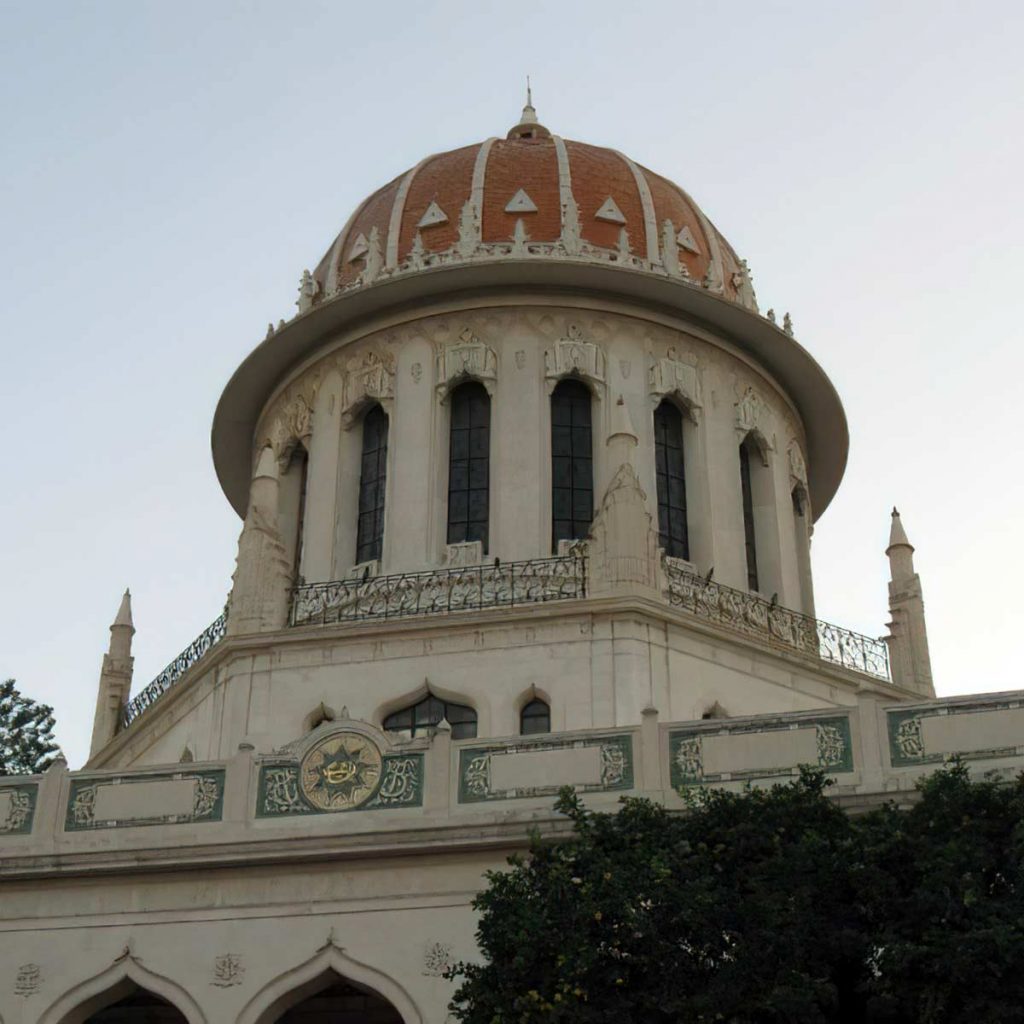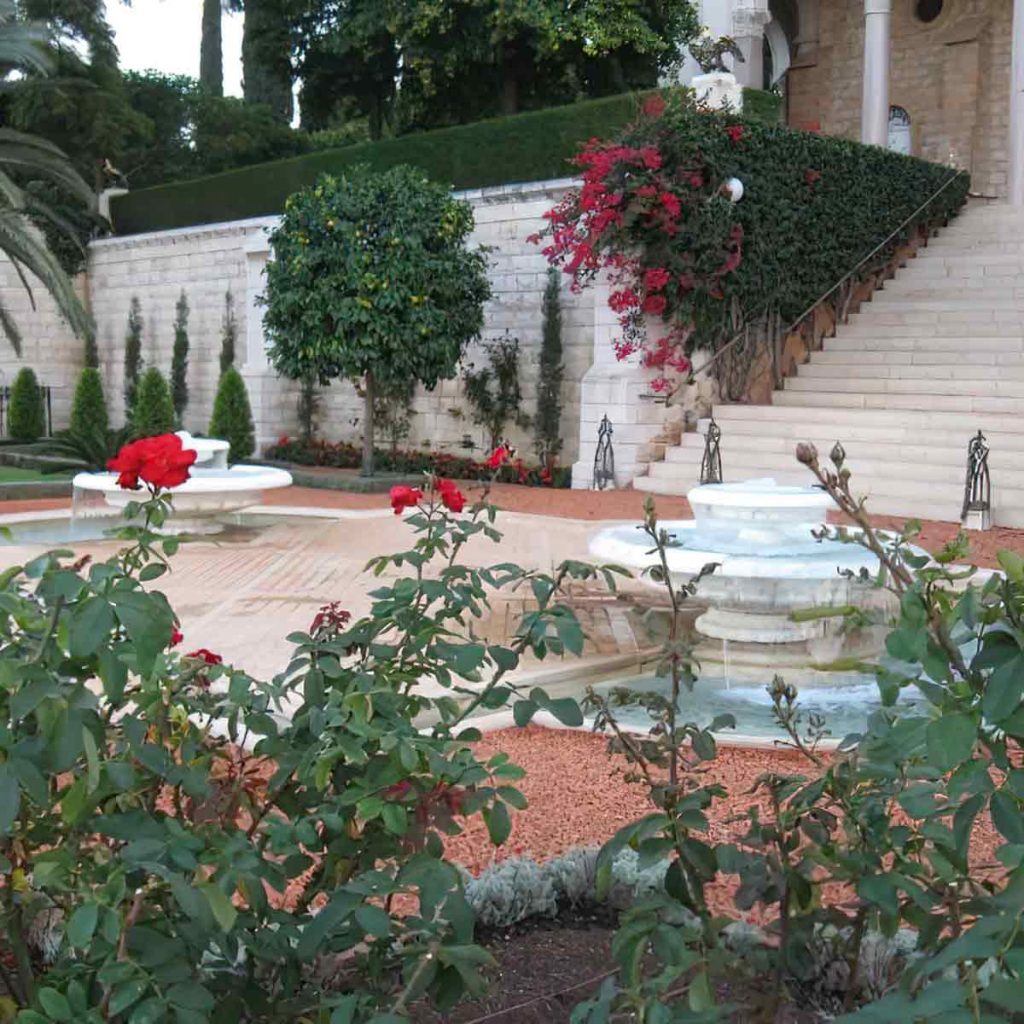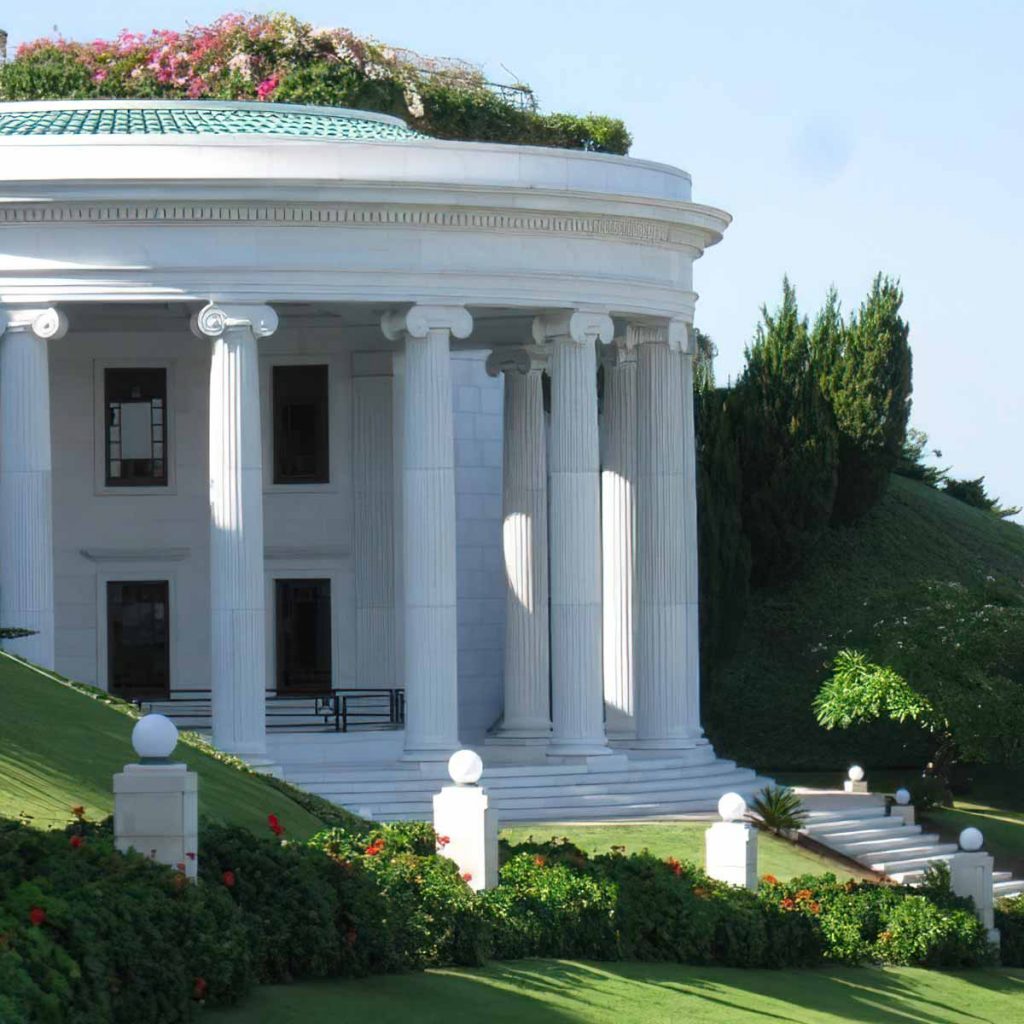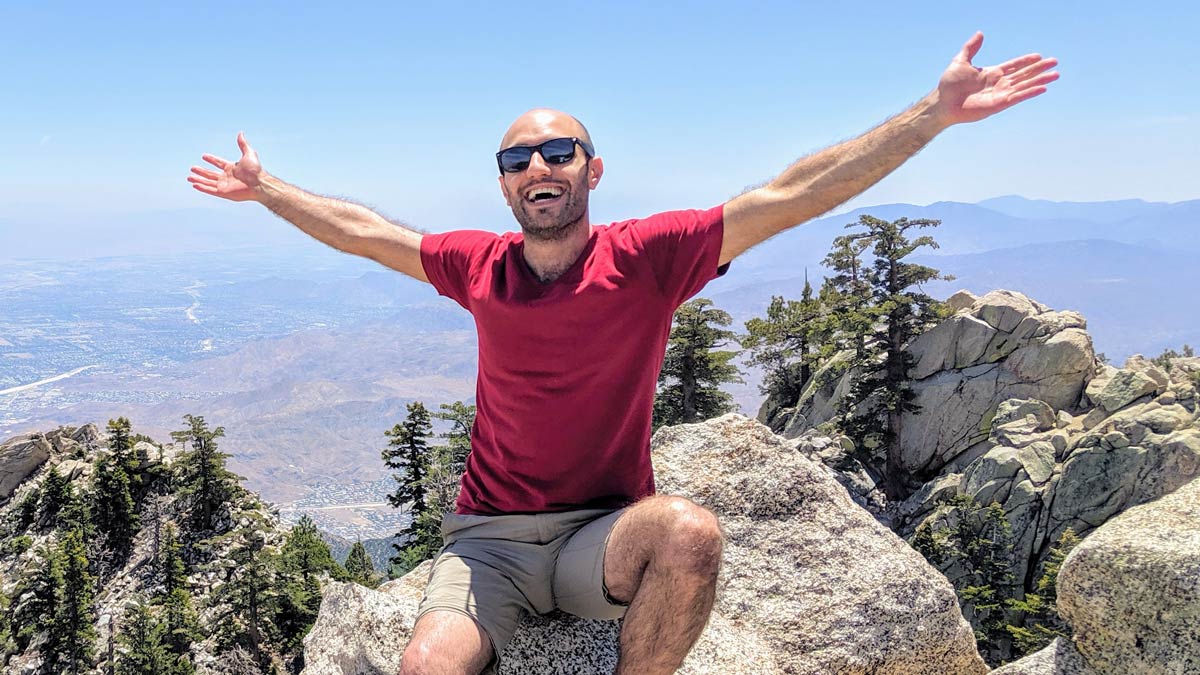How losing my faith helped me discover ‘betterhood’
During my first independent trip abroad at age 21, I agreed to my mother’s request to make a stopover in the Baháʼí holy land in Haifa, Israel.
I began my pilgrimage at the Shrine of Baháʼu’lláh, on the outskirts of the Acre.
Emerging from a sherut—a minivan taxi—I was ushered along the pebbled path, past rows of cypresses, towards a stately mansion with an air of quiet repose.
The path ended at an elegantly carved oak door, a view I had glimpsed countless times in the front page of prayer books bearing the irreverent scrawls of my three-year-old self.
But once I was within the Shrine and kneeling on the carpeted floor, I found myself desperately trying to conjure a flame of faith.
Here I was, at the symbolic center of the Baháʼí Faith; the point of devotion towards which all Baháʼí’s turned during prayer.
The Shrine was the final resting place of the prophet Baha’u’llah, who had been tortured, imprisoned, banished, and betrayed in the name of his Faith.
What right did I have then to feel as I did, like a gourd carved clean of its meat and left to fester in the sun?
Just who was I to squander this chance to connect with the Transcendent on His home turf?
Yet for all my knowledge of the spiritual ocean that surrounded me, for all its lapping at the walls of anger around my heart, I was not yet willing to surrender them.
For I had built these defenses, brick by painful brick, against the cruel vagaries of life. They had served as sole protection against the frightening, unpredictable world beyond.
And yet they had also kept me in a kind of half-life, an open-eyed slumber from which I now struggled to wake.

Table of contents
Losing my faith
From a young age, I was stricken by a profound sense of grief. It was as if both my parents, who were alive and well, had died.
Their assurances of love seemed only that—a kind of parental lip service I feared may not be true.
The closeness and understanding I craved I knew could never be possible. For a vast unnamable gulf stood between us, a gulf born of misattunement and intergenerational trauma.
The belief in my own inherent unlovability was the first of many unexplainable secrets I carried with me into my adulthood.
Then there was the fact that I forever felt like the odd one out. School classrooms were a sensory overload prison. A background hum of social anxiety pervaded each day.
My need to escape drove me away from people and into rumination. I took up residence inside inner worlds of data collection and categorization.
Unsurprisingly, the resulting isolation made me easy pickings for the schoolyard birds of prey.
It would not be until after my 26th birthday that I’d receive an explanation, in the form of a diagnosis with Asperger syndrome. The upheaval this would bring, however, was still many years away.
The third secret involved a brother who in my teen years came to rule our home with his fists, baldfaced lies, and crocodile tears.
When my brother “disappeared” first my CD player, then my pet parrot, my parents did not so much as speak. For what could be said to appease this neverending rage that drove my sibling-turned-stranger to break windows and blacken eyes?
After too many years of handling a searing lump of coal with kid gloves, my parents bandaged their hands and retreated into silence.
My family, once as solid and seemingly invulnerable as an iceberg, ruptured, individual pieces carried slowly away by the currents of unresolved tensions.
We drifted, until at last, one final conflict forced us completely apart. At age 17, I came out as gay to my parents.
Mom and dad’s response was curiously devoid of emotions, but their fear and resulting anger were all too clear.
It was a burden I could not—would not carry. I packed my bags and left, fleeing into solitary adulthood, into the false comforts of workaholism.
For a decade, I made film after film and wrote novel after novel. I collected degrees, notching my belt until there were more holes than leather.
I wandered through a kind of phantom existence, forever evading the seemingly unspeakable facets of my past, secretly resenting my Maker for His apparent role in predestination.
Soon, however, everything I had fought so hard to keep buried resurfaced. The three secrets I had been born in silence took physical shape as anxiety, depression, and a digestive ailment I would later discover was irritable bowel syndrome.

A ‘world of illusion’
The Baháʼí writings tell us that we live in a “world of illusion”, a “mirage rising over the sands”.
Baháʼí leader ‘Abdu’l-Bahá advises us to abandon our attachment to this world, warning that “the repose it proffereth only weariness and sorrow”.
The Baháʼí writings explain that calamities and afflictions—whether of our own creation or the will of the Almighty—are a crucible for spiritual refinement.
Our difficult experiences, we are counseled, only offer proof of the necessity of spurring the mortal world; remind us to focus our energies instead on service to humanity, and preparation for a spiritual afterlife.
But to the walking wounded, promises “of blissful joy, of heavenly delight”, of an exalted station in some “celestial Paradise” are only that: words.
Heaven emerges from the Baháʼí writings only as a half-sketched marvel in the far margins of human comprehension; insubstantial balm for very real pain.
Any surprises then that my ego rebelled against the writings, rejecting the idea that I should find contentment in God’s apparent will; in treading the “path of resignation”.
And yet I what was my ego, except a result of the mortal condition—a condition without which my suffering as well simply would not exist.
The turning point
For a decade, I found myself theologically adrift, tethered to the Baháʼí Faith by the thinnest cord of belief, yet clinging to it all the same.
Then at age 30, the grief crescendoed and I found myself at a crossroads. I could remain where I was and be crushed by the tangled accrual of trauma, or I could begin cutting myself free.
I chose the latter, undertaking therapy, exploring books on spirituality and self-betterment, and committing to daily meditation.
Frozen emotions thawed. Long-suppressed grief flowed. And an informal truce was struck, the cold war between religious obligation and bitter experience drawing to a quiet close.
I found myself once more seeking solace in the Baháʼí writings, reciting prayers that were always met with silence.
And yet…there was always a kind of answer to be found in the immediate calm that followed; in the finding of unexpected composure.

From faith to ‘betterhood’
My return to the arena of life was not as a man garbed in the armor of blind faith.
For as a compassionate being, I could not help but continue to question the suffering that defines the human condition.
Still, as one who has suffered and saw survived, I no longer saw the words of prophets and other luminaries as simply indifferent and tone-deaf.
Rather, they carry a certain charge. They offer consolation. Like swatches of color in a monochrome world, they offer a vision of “betterhood”.
Betterhood inspires hope. It propels us towards a higher calling. Betterhood is what I credit for leading me to advocate for others, through documentary filmmaking and the social work profession.
Today, the million dissenting voices of doubt remain as present as ever. The dialogue between the instinct to resist and the desire to surrender to some higher power continues.
But it is a dialogue that needs not end. To question is fundamentally human. And it is the necessary preface to true belief.

Essy Knopf is a therapist who likes to explore what it means to be neurodivergent and queer. Subscribe to get all new posts sent directly to your inbox.
© 2025 Ehsan "Essy" Knopf. Any views or opinions represented in this blog are personal and belong solely to the blog owner and do not represent those of people, institutions or organizations that the owner may or may not be associated with in professional or personal capacity, unless explicitly stated. All content found on the EssyKnopf.com website and affiliated social media accounts were created for informational purposes only and should not be treated as a substitute for the advice of qualified medical or mental health professionals. Always follow the advice of your designated provider.


